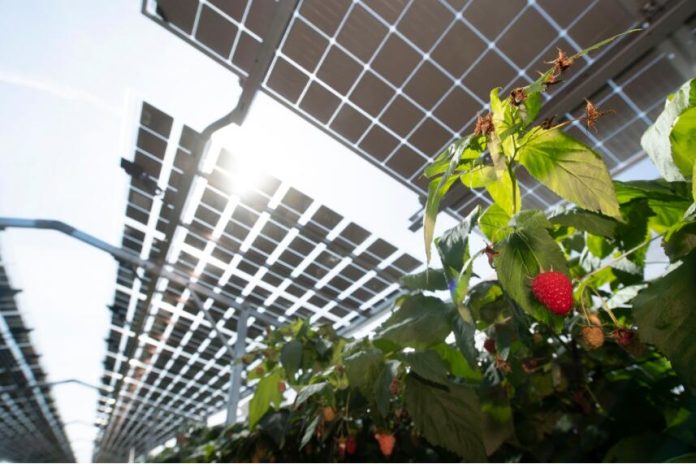Germany is launching an initiative to support the construction of solar projects on agricultural land, in a move the economy ministry estimates could result in the deployment of 200GW of extra PV capacity.
A joint package announced by the ministers of agriculture, climate and environment will see agriPV plants promoted by Germany’s Renewable Energy Act (EEG), enabling land to be used for both power production and agriculture.
Moorland used for agriculture could be used to install solar projects under the EEG as long as the land is restored, while it will also be possible for agriPV projects to receive funding under the European Union’s Common Agricultural Policy (CAP).
Cem ?zdemir, minister for agriculture, said the proposals represent a “win-win-win for climate, nature and agriculture”, adding: “Our three houses have set out to ensure an optimal exchange between the requirements of agriculture and energy production as well as the protection of nature.”
The plans form part of efforts from Germany’s new coalition government to generate at least 80% of its power from renewables in less than nine years, up from 45% in 2020, as it also targets 200GW of installed solar capacity by 2030.
German solar trade association the Bundesverband Solarwirtschaft (BSW), which recently warned that barriers will need to be “torn down” for the 200GW target to be met, welcomed the government’s agriPV proposals, but said it is also necessary to expand the currently “very restrictive” location framework for the construction of new solar parks.
“The proposals now being submitted by the federal ministries are a step in the right direction, but they fall short,” said BSW CEO Carsten K?rnig, adding that a lack of solar park locations “will foreseeably become an investment barrier”.
A recently announced agriPV research project in the German state of Rhineland-Palatinate is being used to explore how solar systems can protect plants and fruits from extreme weather. The project partners, renewables developer BayWa r.e. and the Fraunhofer Institute for Solar Energy Systems ISE, are testing different PV module configurations to identify the impact on plant growth and crop yields.
According to trade association SolarPower Europe, new rules from the European Commission could encourage tenders specific to certain renewable applications, including agriPV.
Germany to accelerate solar PV deployment on agricultural land
Germany’s new coalition is aiming for 80% renewable power by 2030.
Source:PVTECH
ViaJules Scully






